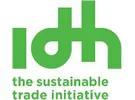On September 23, in Utrecht, the Netherlands, the signatories and stakeholders of the agreement focusing on international responsible business conduct in the floriculture sector looked back on the achievements of the past three years while at the same time looking ahead to the implementation of the recommendations.
The IRBC Agreement
The IRBC agreement for the floriculture sector was launched in 2019 when several companies from the Dutch floriculture sector joined forces with the government, trade unions, and NGO's. Over the following three years, the parties have worked together towards more responsible international production and trade of floricultural crops, in particular working on 'due diligence' (also known as 'supply chain responsibility), living wages, and the impact of plant protection products on people and the environment. Concrete steps have been taken to improve, and learnings have been documented to pass on to the rest of the sector for future scaling up.

During the stakeholder meeting, the IRBC Roadmap was handed over. From right to left: Steven Smit, Ministry of Foreign Affairs, Ted van der Put, Chairman IRBC, Marcel Zandvliet, Vice-Chair of the Floriculture Sustainability Initiative (FSI) Board and Jeroen Oudheusden, Executive Officer of FSI.
International Responsible Business Conduct
Regarding Responsible Business Conduct, the parties have taken steps to establish a due diligence process consistent with the OECD Guidelines and the United Nations Business and Human Rights Principles. In addition, companies have also developed and implemented several practical tools. An external evaluation of the implementation of due diligence by all companies showed that this has led to overall progress on all steps in the prescribed process, although there are still ample opportunities for improvement in the future.
Living wage and crop protection
Besides the work on due diligence, the parties have carried out a pilot to map the living wage in East Africa and to set up a living wage roadmap for companies. Based on this, a second project has also been set up to examine how a living wage can be tackled in a supply chain context, which will continue until November 2022. For crop protection, the parties have conducted a study into the most common health risks and the associated recommendations for safe use. In terms of environmental impact, the parties contributed to the development of the Environmental Indicator Crop Protection, a project by Wageningen University WUR and a consortium of parties.
Next steps
Now that the IRBC agreement has been completed with a review of the pre-established objectives and results, the parties are mainly looking to the future. The results and lessons are applicable to the entire sector. To ensure continuity and give the recommendations a wider reach, the parties have embedded the recommendations in agreements with stakeholders, including the Floriculture Sustainability Initiative (FSI). With the transfer of the recommendations, the parties strengthen the FSI strategy for 2025.
Final report
The results, lessons, and recommendations of the IRBC agreement are set out in more detail in the IRBC floriculture sector final report. The tools and knowledge developed are also freely available on; www.idhsustainabletrade.com.
For more information:
Jeroen Oudheusden
[email protected]
Coen Frederiks
[email protected]  IDH - The Sustainable Trade Initiative
IDH - The Sustainable Trade Initiative
+31(0)30 230 5660
[email protected]
www.idhsustainabletrade.com
